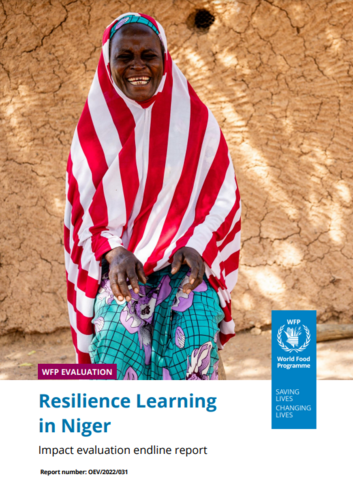
The concept of resilience has gained attention because it recognizes the importance of addressing shorter-term humanitarian needs, while simultaneously supporting communities in their efforts to cope with future crises induced by climate change, conflict, and other factors. Many institutions, including the World Food Programme (WFP), have increasingly adopted a resilience-based approach in their programming.
In 2018, WFP and the governments of Burkina Faso, Chad, Mali, Mauritania, and Niger launched the Sahel Integrated Resilience Programme, an integrated approach to boosting communities’ resilience and ability to adapt to ecosystem degradation, climate change and other vulnerabilities (WFP, 2023).
This impact evaluation investigates the impact of integrated resilience programming, including food assistance for assets (FFA), lean season support (LSS) and accompanying livelihood activities, on household resilience. Taking resilience as a household’s ability to adapt to their environments, absorb shocks and stressors, and transform their capacities, this impact evaluation combines detailed baseline and follow-up data, covering broad household capacities, with high-frequency data, measuring food security and well-being dynamics. It focuses on household or individual level outcomes. Therefore, it does not measure impacts on ecosystems, nor system-level impacts on soil restoration or food value chains. Impacts are estimated up to two years after the start of programme implementation, between the years 2021 and 2023, and so this evaluation does not record potential improvements in food security and well-being driven by improvements in the ecosystem which may take longer to materialize.